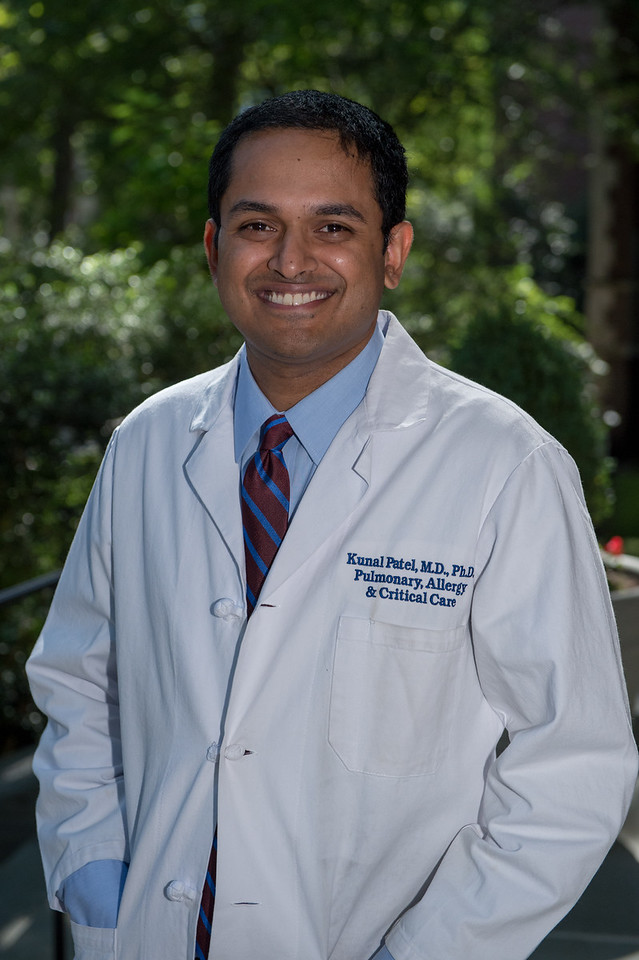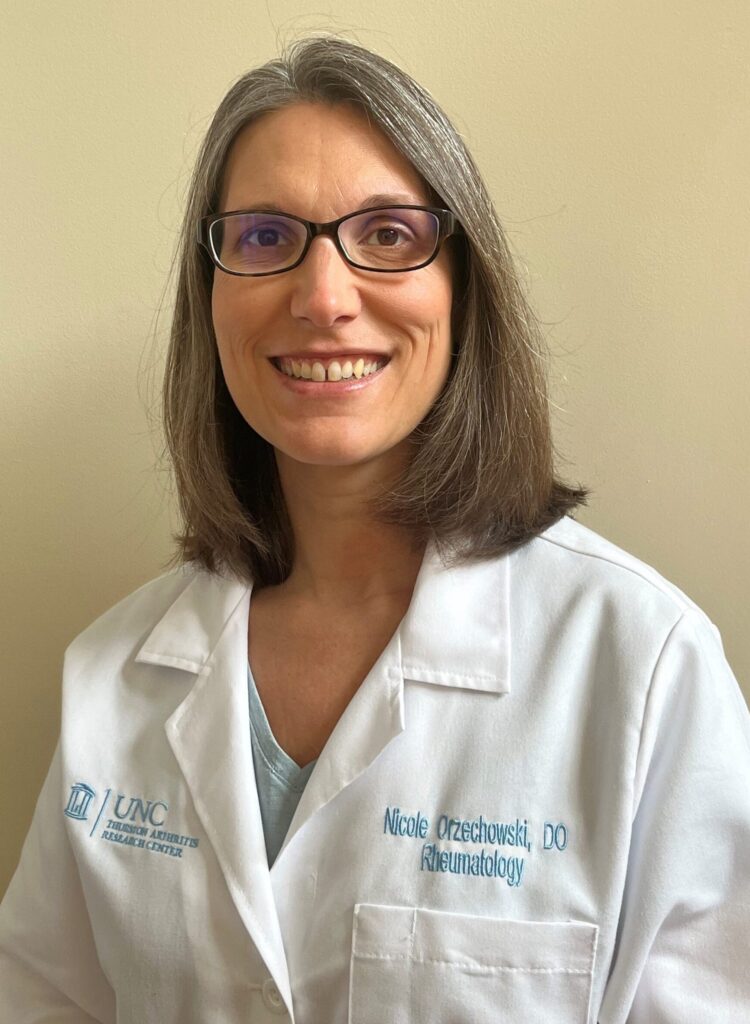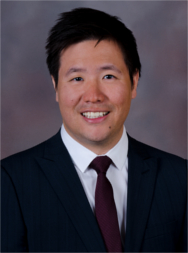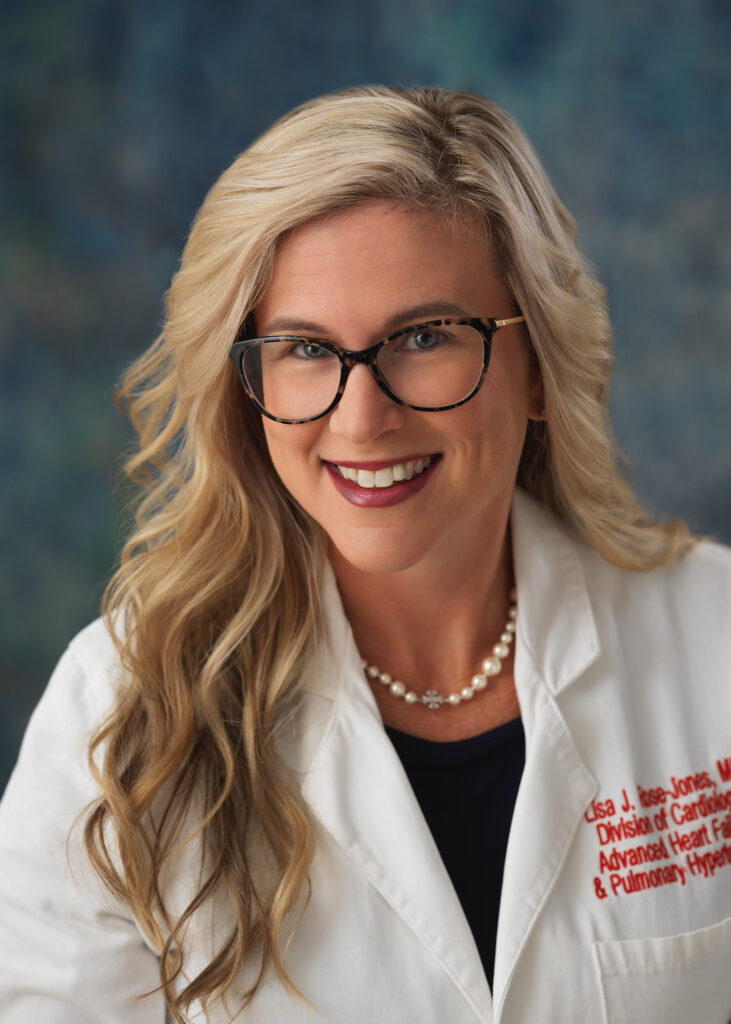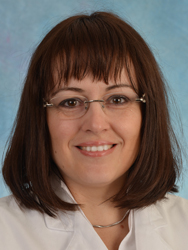Sarcoidosis
The Sarcoidosis Clinic at UNC Chapel Hill is recognized by the World Association of Sarcoidosis and other Granulomatous Disorders (WASOG) and the Foundation for Sarcoidosis Research (FSR). We offer comprehensive and multi-disciplinary care for patients with sarcoidosis. Our team strives to meet the needs of sarcoidosis patients, improve their health, as well as manage their symptoms.
The Sarcoidosis Clinic involves providers from many specialties (e.g., pulmonary, cardiology, rheumatology, neurology, ophthalmology and dermatology) all of whom are experienced in the treatment of sarcoidosis.
What is Sarcoidosis?
Sarcoidosis is a disease in which the body’s immune system becomes activated for unclear reasons. Since the lungs are affected in more than 90% of patients with sarcoidosis, pulmonologists are usually called upon to take care of patients with this disease. Sarcoidosis can occur silently and become detected incidentally when a chest x ray is obtained for other reasons, or can produce symptoms such as cough or shortness of breath. Since sarcoidosis often resolves spontaneously, treatment is not always necessary. Sarcoidosis can also affect the skin and the eyes, and rarely other organs of the body.
What Causes Sarcoidosis?
The cause of sarcoidosis is unknown. It is currently felt that sarcoidosis develops due to an exaggerated immune response in genetically predisposed individuals after exposure to an environmental stimulus. Unfortunately, both the genetic factors contributing to the development of disease and the environmental triggers that persons who develop sarcoidosis may be exposed to are poorly understood. Research is underway across the country and world to improve our understanding of sarcoidosis.
How is Sarcoidosis Diagnosed?
Sarcoidosis may not always cause symptoms. When symptoms are present, it can be difficult to make the diagnosis because symptoms may mimic those of other diseases. The diagnosis is made based on the pattern of symptoms, physical exam findings, and abnormalities in laboratory and imaging studies. Diseases that mimic sarcoidosis are also excluded. Tests that are often obtained include: pulmonary function tests, heart MRI, lung CT scan, and PET scan. Tissue samples (biopsies) are sometimes performed from organs believed to be affected by sarcoidosis (e.g., lung or lymph nodes).
How is Sarcoidosis Treated?
Sarcoidosis does not always need to be treated. In many patients the disease goes away spontaneously, and in others it remains dormant causing little or no symptoms. For these reasons, your doctor may not recommend any therapy. Sometimes, however, vital organs become affected by sarcoidosis and treatment becomes necessary. The drug most commonly used to treat sarcoidosis is prednisone. Other drugs that may be used include hydroxychloroquine (Plaquenil), methotrexate, mycophenolate (CellCept®), azathioprine (Imuran®), infliximab (Remicade®), and adalimumab (Humira®).
Our Team
Pulmonary
-
Assistant Professor of Medicine
Associate Professor of Medicine
Director, UNC Adult Asthma Program
Rheumatology
-
Associate Professor of Medicine
Medical Director, UNC Rheumatology Clinic
Cardiology
-
Professor of Medicine, Division of Cardiology
Director, Heart Failure and Transplant Program
Assistant Professor of Medicine, Division of Cardiology
Medical Director, Heart Failure Clinic, UNC-Rex Hospital
Associate Professor of Medicine, Division of Cardiology
Advanced Heart Failure/Cardiac Transplantation & Pulmonary Hypertension
Neurology
-
Associate Professor of Medicine
Division Chief; Multiple Sclerosis and Neuroimmunology
Assistant Professor of Medicine
Assistant Professor of Ophthalmology
Contact Us:
UNC Sarcoidosis Clinic
Address: 100 Eastowne Dr, Chapel Hill, NC 27514
Phone: (984) 974-5703
More information on sarcoidosis.
-
